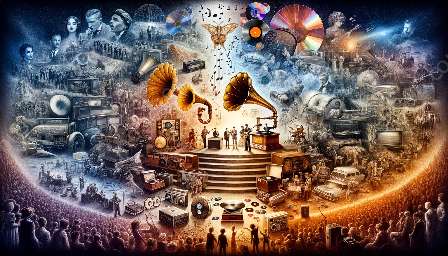The music industry is experiencing significant shifts in its revenue streams, driven by technology advancements, changing consumer behaviors, and evolving business models. With the rise of digital platforms and changing consumption patterns, musicians are presented with diverse opportunities to generate income. In this article, we will delve into the current trends and future prospects of revenue streams for musicians and explore how they can effectively navigate the evolving landscape of the music business.
1. Streaming Platforms and Digital Distribution
One of the most prominent trends in the music industry is the increasing reliance on streaming platforms for both music consumption and revenue generation. As the popularity of streaming services continues to grow, musicians have the opportunity to earn royalties through platforms like Spotify, Apple Music, and Amazon Music. With a vast audience base, streaming offers musicians an effective way to reach and monetize their music.
Moreover, digital distribution services have become essential for independent musicians, allowing them to distribute their music globally without the need for physical distribution channels. Services such as TuneCore, CD Baby, and DistroKid enable artists to upload and sell their music across various online stores and streaming platforms, unlocking new revenue streams.
2. Live Performances and Touring
Live performances and touring have long been a significant source of revenue for musicians, and this trend is expected to continue in the future. In an era where digital music can be easily accessed for free, the value of live experiences has only increased. Musicians can capitalize on this trend by organizing concerts, music festivals, and tours, offering fans an immersive and unique experience that cannot be replicated through recorded music alone.
Additionally, advancements in event technology and ticketing platforms have improved the efficiency of organizing and promoting live events, enabling musicians to maximize their earnings from live performances. The growing demand for live experiences presents musicians with a lucrative revenue stream that complements their digital earnings.
3. Merchandising and Brand Partnerships
Merchandising and brand partnerships have emerged as lucrative revenue streams for musicians, allowing them to leverage their brand and fanbase to create and sell merchandise such as t-shirts, posters, vinyl records, and other collectibles. With the advent of e-commerce platforms and print-on-demand services, musicians can easily design and sell their own branded merchandise, providing an additional source of income while strengthening their connection with fans.
Furthermore, brand partnerships and sponsorships offer musicians the opportunity to align with relevant brands and companies, generating revenue through endorsements, product collaborations, and sponsored content. By associating with brands that resonate with their audience, musicians can create mutually beneficial partnerships that contribute to their overall revenue stream.
4. Sync Licensing and Music Placement
Sync licensing and music placement in films, TV shows, commercials, and video games have become increasingly popular avenues for musicians to monetize their music. With the growing demand for original music content across various media platforms, musicians can explore opportunities to license their music for synchronization, earning royalties and exposure through entertainment and advertising placements.
Platforms like music libraries and sync agencies facilitate the connection between musicians and content creators, making it easier for artists to showcase their music for potential licensing opportunities. As the demand for diverse and high-quality music content continues to rise, sync licensing presents a promising revenue stream for musicians with original compositions and recordings.
5. NFTs and Blockchain Technology
The emergence of non-fungible tokens (NFTs) and blockchain technology has introduced a new dimension to revenue streams in the music industry. NFTs enable musicians to tokenize their music, offering unique digital assets that can be bought, sold, and traded on blockchain platforms. Through NFT marketplaces, artists can auction exclusive music releases, concert tickets, and collectibles, creating a direct-to-fan monetization model that bypasses traditional intermediaries.
Blockchain technology also holds potential in revolutionizing royalty payments and rights management, providing transparent and decentralized systems for tracking and distributing music royalties. By embracing blockchain-based solutions, musicians can streamline royalty collection, eliminate intermediaries, and ensure fair compensation for their creative works in the digital era.
Future Prospects and Adaptation
The future of revenue streams in the music industry is marked by ongoing innovation and adaptation to changing market dynamics. As technology continues to shape the way music is consumed and monetized, musicians must remain agile and open to exploring new opportunities for revenue generation. From leveraging emerging technologies to engaging with fans through creative experiences, the music business presents an ever-evolving landscape of possibilities for revenue growth.
By embracing a multi-faceted approach that combines digital distribution, live experiences, merchandise, licensing, and emerging technologies, musicians can diversify their revenue streams and create sustainable business models that align with the dynamic nature of the music industry.
In Conclusion
The music industry is witnessing transformative shifts in revenue streams, offering musicians a diverse spectrum of income sources beyond traditional album sales. From digital streaming and live performances to merchandising, licensing, and blockchain-driven innovations, the potential for revenue generation in the music business is expansive and evolving. As musicians adapt to these trends and future prospects, they have the opportunity to cultivate thriving businesses and connect with audiences in innovative ways, ultimately shaping the future of the music industry's revenue landscape.









































